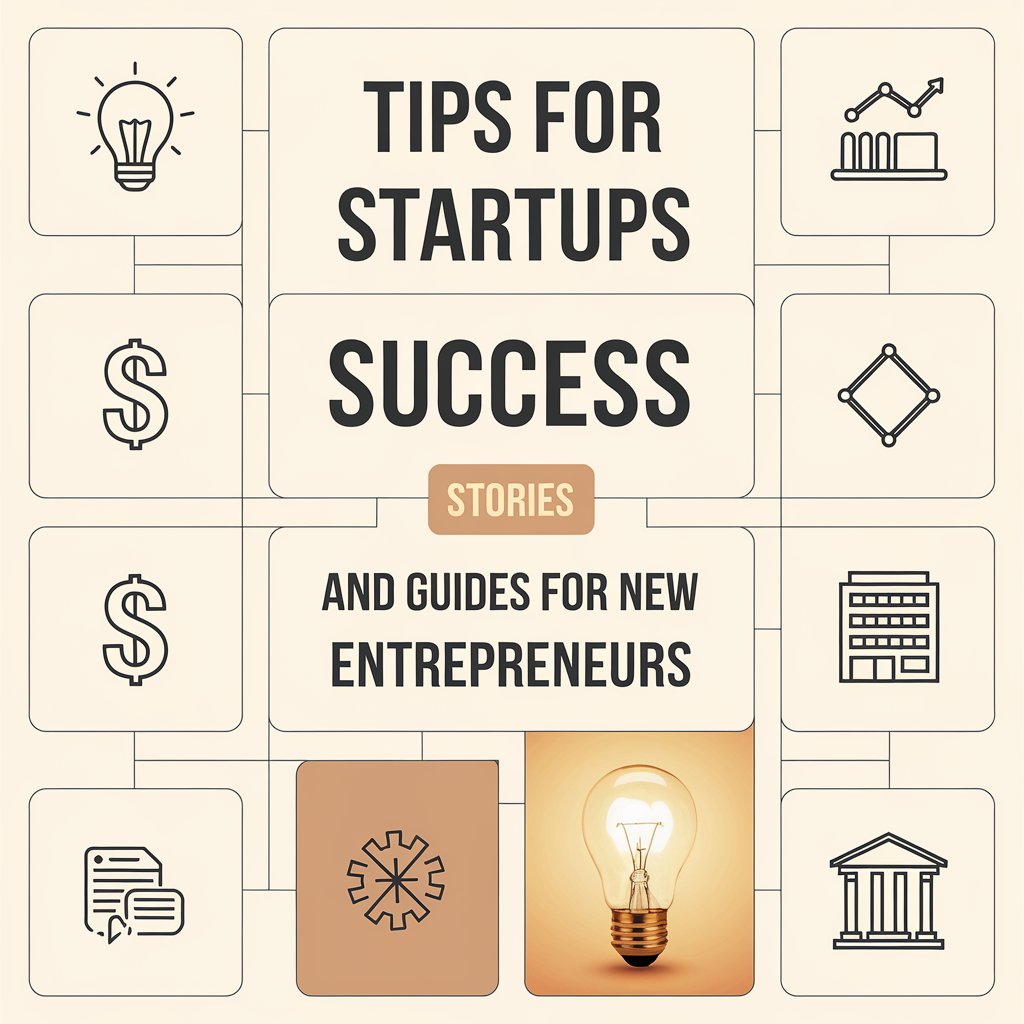Introduction
Starting a business is like setting off on a thrilling adventure. You’re filled with excitement, but also aware that the path won’t always be smooth. For new entrepreneurs, having the right guidance can make all the difference. Whether you’re thinking about launching a product, providing a unique service, or trying to innovate within an industry, these tips, success stories, and startup guides will set you on a firm path toward success.
Setting the Foundation for Your Startup
Understanding Your “Why”
Every successful business begins with a clear purpose. Understanding why you want to start a business will guide your journey and keep you motivated through challenging times.
Researching the Market
Knowing your market inside and out is critical. Conduct thorough research to understand your competitors, target audience, and industry trends. By identifying a niche and addressing your audience’s needs, you’ll be one step ahead.
Developing a Business Plan
Components of a Strong Business Plan
A solid business plan is your roadmap to success. Outline your goals, business model, revenue streams, and marketing strategies. A well-prepared plan will help you secure investors and keep you on track.
Setting Realistic Goals and Milestones
Setting SMART (Specific, Measurable, Achievable, Relevant, and Time-bound) goals can turn your vision into achievable steps. Break down your objectives to measure progress, and celebrate small wins.

Building the Right Team
Finding Your Core Team
Surround yourself with people who share your vision and bring complementary skills to the table. Building a diverse team with unique expertise will give your startup a well-rounded foundation.
Defining Roles and Responsibilities
Identify key roles early on and set clear responsibilities. For example, you’ll likely need someone handling finance, marketing, and operations in the beginning stages.
Securing Funding
Exploring Funding Options
Explore funding avenues that fit your business. Bootstrapping, approaching angel investors, or seeking venture capital are common options. Each has its pros and cons, so consider your long-term goals.
Creating a Compelling Pitch
An engaging pitch can win over investors. Focus on the problem your startup solves, the market opportunity, and why your solution is unique. Practice and refine your pitch to make a strong impression.
Building Your Brand
Crafting Your Brand Identity
Your brand is more than just a logo. It’s the voice, values, and personality of your business. Take time to develop a memorable and consistent brand identity that resonates with your target audience.
Building an Online Presence
In today’s digital world, an online presence is essential. A well-designed website and active social media profiles can build credibility and reach a broader audience.
Marketing and Customer Acquisition
Developing a Marketing Strategy
A clear marketing strategy will guide how you reach and attract customers. Utilize a mix of SEO, content marketing, social media, and paid advertising to engage your target audience effectively.
Understanding Customer Acquisition Channels
Explore customer acquisition methods that suit your product or service. From social media to referral marketing, choose channels that allow you to grow your customer base sustainably.

Success Stories: Learning from Others
Story of Airbnb
Starting as a small idea in a cramped apartment, Airbnb turned the travel industry upside down. Their story highlights the importance of resilience, innovation, and a willingness to pivot.
Story of Dropbox
Dropbox revolutionized file storage by focusing on simplicity and user experience. This success story emphasizes the impact of solving real problems with accessible solutions.
Overcoming Challenges as a New Entrepreneur
Dealing with Self-Doubt and Fear of Failure
Every entrepreneur faces self-doubt. The key is to push through and remind yourself of your purpose. Embrace challenges as opportunities for growth and learning.
Navigating Financial Challenges
Financial challenges are common in the early stages. Keep your expenses lean and prioritize spending on activities that drive growth. Seek advice when needed and learn from others’ mistakes.
Product Development and Launch
Steps to Develop a Product or Service
A well-thought-out development process ensures a successful launch. Start with research, create a prototype, test with potential customers, and refine your product based on feedback.
Launch Strategy and Product Testing
A successful launch strategy includes pre-launch marketing, gathering feedback, and adjusting as necessary. Product testing helps refine your offering and ensures it meets customer needs.
Establishing Customer Relationships
Importance of Customer Feedback
Listening to your customers is invaluable. Feedback not only helps improve your product but also builds trust and shows your commitment to their satisfaction.
Building a Loyal Customer Base
Creating a loyal customer base involves delivering consistent value and fostering relationships. Customer loyalty is key to sustainable growth.
Financial Management for Startups
Budgeting Tips for New Entrepreneurs
A well-managed budget can be the difference between success and failure. Track your spending, avoid unnecessary expenses, and ensure funds are allocated to the areas that will drive the most growth.
Understanding Cash Flow and Profit Margins
Understanding cash flow will help you manage day-to-day finances and keep your business afloat. Aim to achieve positive cash flow early and maximize profit margins for sustainable growth.
Scaling Your Startup
When to Consider Expansion
Scaling a startup requires careful planning. If you’re consistently meeting goals, have a stable customer base, and financial stability, it might be time to expand.
Challenges and Strategies for Scaling Up
Scaling up brings new challenges, including increased costs and complex operations. Stay flexible and be prepared to adapt as you grow.
Maintaining Work-Life Balance
Setting Boundaries
Balance is essential for long-term success. Set boundaries between work and personal life to avoid burnout and maintain mental well-being.
Prioritizing Health and Well-being
Your well-being is as important as your business. Prioritize health by staying active, eating well, and making time for rest.
Conclusion
Starting a business is a journey filled with highs and lows, but with determination, smart planning, and continuous learning, success is within reach. Remember, every successful entrepreneur was once a beginner. Embrace the journey, celebrate small victories, and learn from every challenge.
FAQs
- What’s the most important first step in starting a business?
Conducting thorough market research is crucial. It helps you understand the competition and customer needs. - How do I secure funding for my startup?
Start by exploring options like bootstrapping, crowdfunding, angel investors, and venture capital, depending on your business model. - What’s the best way to market my startup?
Use a mix of digital marketing strategies such as SEO, social media, and content marketing to reach your audience effectively. - How can I manage stress as a new entrepreneur?
Prioritize work-life balance, practice time management, and seek support from mentors or peers when facing challenges. - When should I consider scaling my startup?
Scale when you have a solid


